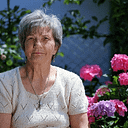Luscha Baumwald introduces us to Apnea: Severity of Sleep Apnea Reduced by Repurposing Existing Drugs.
New research published in The Journal of Physiology shows that researchers have successfully repurposed two existing medications to reduce the severity of sleep apnoea in people by at least 30 per cent.
Affecting around 1.5 million adults in the UK, sleep apnoea is a condition where the upper airway from the back of the nose to the throat closes repetitively during sleep, restricting oxygen intake and causing people to wake as often as 100 times or more per hour.
Those with untreated sleep apnoea are more likely to develop cardiovascular disease, dementia and depression, and are two to four times more likely to crash a car than the general population.
Despite almost thirty years of research, there are no approved drug therapies to treat the condition.
Professor Danny Eckert, Principal Research Scientist at NeuRA and Professor and Director of Adelaide Institute for Sleep Health at Flinders University, has brought scientists one step closer by repurposing two existing medications to test their efficacy in people in sleep apnoea.
Previous research showed two classes of medication, reboxetine and butylbromide, were able to keep muscles active during sleep in people without sleep apnoea, and assist their ability to breathe.
